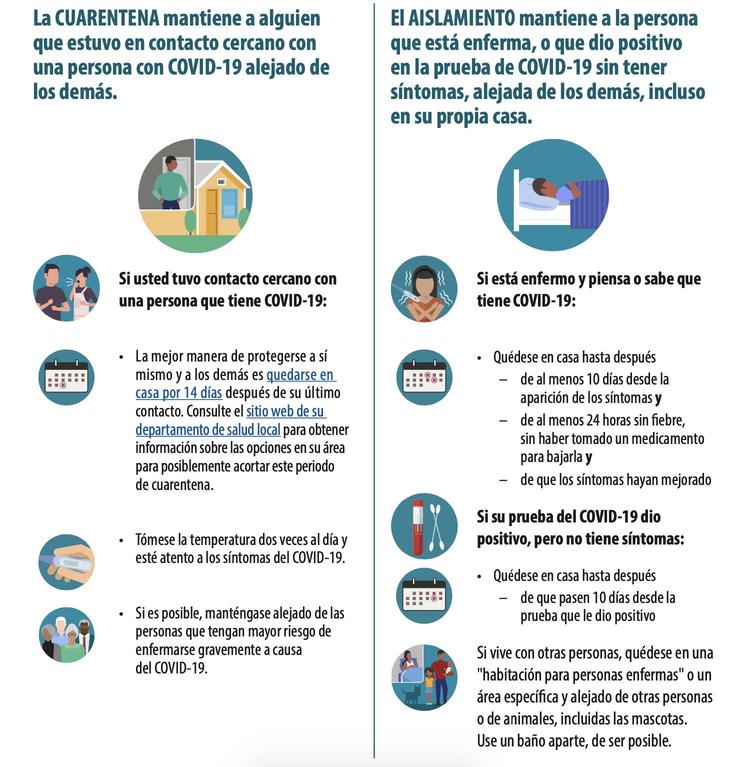What to do if you, your son or daughter contract Covid-19 at home
Many people who get sick with COVID-19 experience mild symptoms and can recover at home. However, for many families living together, it is often difficult to avoid spreading the virus to other people. Here are some tips on what to do if you or a family member gets sick.
People who test positive for COVID-19 and have mild or no symptoms can usually be cared for safely at home, as long as they are not at risk of severe illness. People at risk of serious illness – including the elderly, pregnant, or those with a chronic illness or immunosuppressive condition – should contact their doctor for guidance.
Seek medical attention immediately if the sick person's condition worsens.
Go to:
Caring for someone with COVID-19What to tell kids if someone gets sickTips if you get sickWhat to do if your child gets sick
Caring for Someone With COVID-19
As you care for your sick family member, remember to take care of yourself as well.
Limit the number of caregivers. Ideally, assign a person who is in good health and not at high risk of severe illness from COVID-19, that is, who is fully vaccinated, under 60 years of age, and does not have any chronic disease.
Help the sick person follow their doctor's instructions. In general, you should rest, drink plenty of fluids, and eat nutritious food.

Monitor symptoms
Seek medical attention immediately if the sick person has:
Some symptoms depend on age. You should seek urgent care if a baby cannot be breastfed, if a young child has a high fever, or if a child suddenly seems confused, refuses to eat, or if their face or lips turn blue.
Monitor yourself and other household members for any symptoms of COVID-19, such as fever, sore throat, muscle or body aches, stuffy or runny nose, nausea or vomiting, diarrhea, difficulty shortness of breath, dry cough or tiredness. In the case of boys and girls, the symptoms may vary. Babies' symptoms may include difficulty feeding, rapid breathing, and lethargy. Get tested if you have any of these symptoms.
Take precautions
It's important to follow precautions, even if you and other family members are vaccinated. No vaccine protects you 100 percent against infection, and it is possible to spread the virus to other people if you are infected.
Talk to your sons and daughters about these preventative measures and how important it is for everyone to follow them carefully to help stop the spread of the virus.
Physical distancing: Avoid unnecessary contact with the sick person, who should stay in a separate room, if possible, or at least one meter away from other family members, to reduce the risk of spreading the infection.
Wearing a mask: Everyone should wear a well-fitting medical mask when in the same room as the sick person (who should also wear one).
Wash your hands regularly: Wash your hands with soap and water or an alcohol-based hand rub regularly, especially after any contact with the sick person.
>> Read: Tips for children to wash their hands
Ventilation: Make sure shared spaces (for example, kitchen or bathroom) are well ventilated (keep windows open).
Cleanliness and hygiene: Use specific plates, cups, eating utensils, sheets, and towels for the sick person. Wash them all with soap and hot water.
Identify surfaces that the sick person touches frequently (such as chairs, tables, bed frames, doorknobs, and toys) and clean and disinfect them daily.
>> Read: Cleaning and disinfection tips
Clean and disinfect the bathroom with gloves (if available) after each use by the sick person if the sick person cannot do it themselves.
The dirty clothes of a sick person can be washed with other people's, but precautions must be taken:
Use a separate trash bag for the sick person to safely dispose of used tissues, masks, and other debris.
Visits should not be allowed until the patient has fully recovered and has no signs or symptoms of COVID-19.
Follow national guidance on how long the sick person should be in isolation and whether others in the household should be in isolation. The WHO recommends that sick people self-isolate for 10 days from the onset of any symptoms, plus three days after symptoms disappear.

